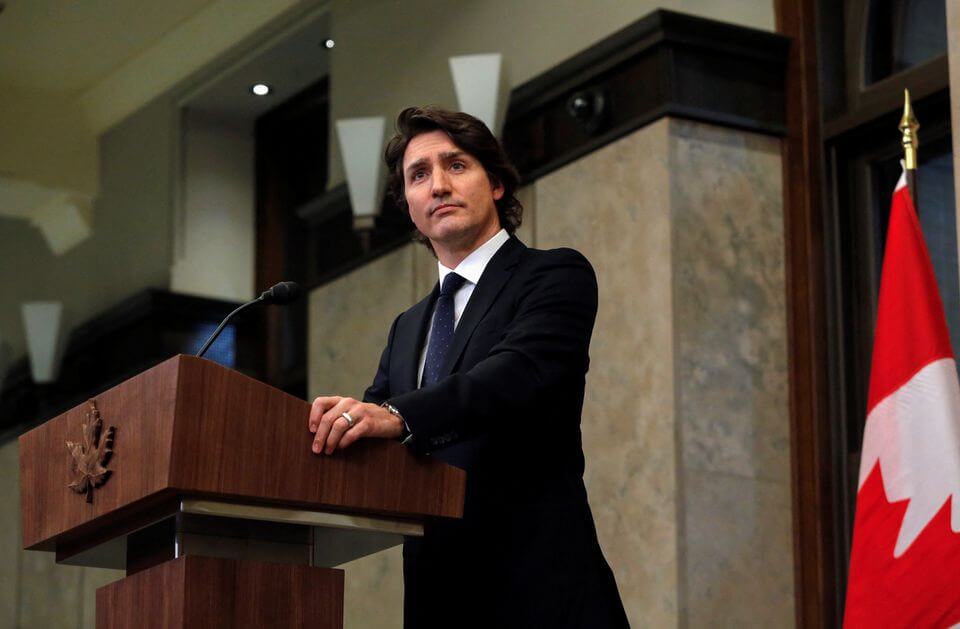Canadian Prime Minister (PM) Justin Trudeau on Monday declared a Public Order Emergency under the Emergencies Act for the first time in Canada’s history, in an effort to quell the ongoing anti-vaccine protests and blockades in the capital, Ottawa, and at the border with the United States (US). The protests initially began after a group of Canadian truckers under the name ‘Freedom Convoy’ decided to demonstrate against the administration’s vaccine mandate on cross-border truckers. However, as the movement gained popularity, it began to encompass a broad range of anti-government grievances criticising Trudeau’s COVID-19 policies, masking requirements, and lockdowns.
In a press conference, Trudeau called the ongoing protests and blockades an “illegal occupation,” saying they are no longer lawful and present a serious challenge to the government’s ability to enforce the law. He stressed that the act was being invoked only as a last resort measure, saying, “This is about keeping Canadians safe, protecting people’s jobs, and restoring confidence in our institutions.” Trudeau made it clear that he does not plan to mobilise the Canadian army, explaining that the response will be controlled, geographically specific, and proportionate to the threat level.
Deputy PM and Minister of Finance Chrystia Freeland emphasised that the blockades have seriously hampered the Canadian economy, saying that the six-day-long blockade at the Ambassador Bridge connecting Windsor, Ontario with Detroit, Michigan has impacted $390 million in the US-Canada trade each day; the other two blockades in Coutts, Alberta and Emerson, Manitoba together cost $121 million in daily business each day. Freeland also mentioned that the Emergencies Act will extend federal jurisdiction over crowdfunding platforms, adding that The Financial Transactions and Reports Analysis Centre of Canada (FINTRAC)—Canada’s banking watchdog—will also exercise increased power covering “personal and corporate accounts.”

Trudeau’s unprecedented move grants the federal government sweeping powers such as increasing the jurisdiction of the federal Royal Canadian Mounted Police (RCMP), authorising financial institutions to freeze funds, prohibiting public assemblies, and imposing hefty fines or prison sentences. As an update to the War Measures Act, the Emergencies Act was drafted in 1988 and provides the cabinet special temporary responsive measures to tackle national emergencies defined as “urgent and critical situation[s]” that “seriously endanger” the lives of Canadians. However, it is important to note that the measures under the act are still subject to the Canadian Charter of Rights and Freedoms.
The Canadian Civil Liberties Association asserted that the ongoing situation in Canada does not warrant Trudeau’s declaration of the Act, saying that the government should not “normalise” the use of such legislation. To this end, the premiers of Saskatchewan, Manitoba, Alberta and Quebec urged the government to not apply the Act in their province. On the other hand, Ontario Premier Doug Ford and Goldy Hyder, the CEO of the Business Council of Canada, welcomed the move, deeming it important from an economic perspective.
Trudeau’s decision comes after US President Joe Biden and various other Washington officials urged Ottawa to use federal powers on the protests that have forced automobile manufacturers to shut down or severely limit production. Since the protests began more than two weeks ago, Ottawa has declared a state of emergency; similar style right-wing protests have erupted in Australia, New Zealand, and parts of Europe.

